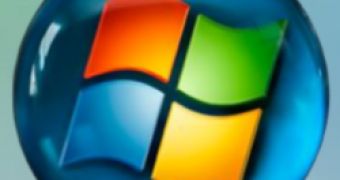Windows Vista is a system resource hog. There is little doubt as to that. But to go from there to Windows Vista actually eating up RAM... Well, in fact you shouldn't blame Windows Vista for missing RAM in a certain scenario. The scenario I am talking about is a 32-bit configuration with 4 GB of RAM. The system information accessed from Windows Vista will never show the whole 4 GB. Why? Like I said, it's not Windows Vista's fault. The fact of the matter is that you won't be able to see the whole 4 GB with any operating system.
I am writing this article and associating it with Windows Vista because I have heard a lot of static about the way the operating system manages RAM. With Vista, memory became one of the most crucial aspects of the configuration, the operating system requiring in excess of 1 GB in order to provide a superior user experience. But on 32-bit systems you cannot go higher than 4 GB. But this is no because of Vista. Additionally, I have come across comments which claimed that Windows Vista only recognizes something like 2 GB or 3 GB.
So what is the problem? Because memory manager in 32-bit Windows Vista is limited to a 4 GB physical address space, users have concluded that the limitations are imposed by the operating system. But this is not the case; in fact, Windows has nothing to do with this restriction, no operating system has, it is an issue with the x86 hardware. The actual problem is that in the limited 32-bit address range you do not only fit RAM but also the other devices in the system. In this context, not all the volume of 4 GB address space will be reserved for RAM. This will leave Windows Vista with something in the vicinity of 3.5 GB if you have a total of 4 GB on your system.
"Most of that address space is filled with RAM, but not all of it. Memory-mapped devices (such as your video card) will use some of that physical address space, as will the BIOS ROMs. After all the non-memory devices have had their say, there will be less than 4GB of address space available for RAM below the 4GB physical address boundary. The rest of it went above the boundary," explained Raymond Chen from the Old New Thing.

 14 DAY TRIAL //
14 DAY TRIAL //